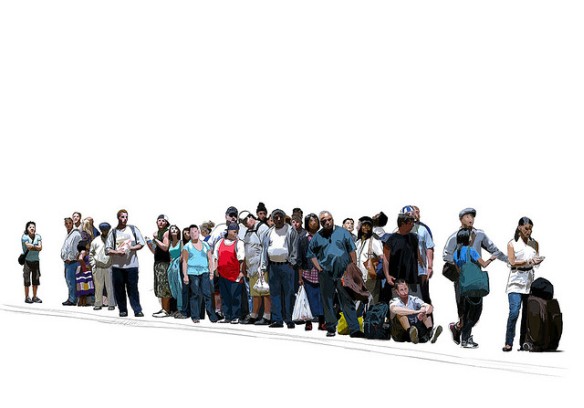I recently turned thirty, and to celebrate, I spent a long weekend in a cabin in the woods with a group of my closest friends. Out of the ten of us that were there, none are married: one is engaged, another is in a serious relationship, and the rest are basically single. In other areas, we are also fairly unattached: over the last few years, most of us have switched jobs, moved to a different city or gone back to grad school.
My friends and I, it seems, represent a trend that has recently been receiving a fair amount of attention. By the standards of the past, we are taking our sweet time settling down into a traditional adulthood based around marriage, family, and a stable career. Research points to a variety of sociological and economic explanations for the hold-up. One of the more in-depth reports was published in the New York Times Magazine last year. Titled “What Is It About Twenty-Somethings?”, this article suggests cause for concern, summing up the situation as follows:
The traditional cycle seems to have gone off course, as young people remain un-tethered to romantic partners or to permanent homes, going back to school for lack of better options, traveling, avoiding commitments, competing ferociously for unpaid internships or temporary (and often grueling) Teach for America jobs, forestalling the beginning of adult life.
The assumption here is that there is still a clear, established “adult life” that young people are aspiring to…
The assumption here is that there is still a clear, established “adult life” that young people are aspiring to – we’re just taking longer to get there. A lot of ink goes to a psychologist named Jeffrey Jensen Arnett, who coined the term “emerging adulthood” to describe this extended period of identity exploration. The post-college process of self-discovery is not unlike what people go through in adolescence, but it takes on new urgency “when people are approaching the age when options tend to close off and lifelong commitments must be made.” And just so there’s no mistake about exactly what age we’re referring to here: “Arnett calls it ‘the age 30 deadline.’”
I don’t think it’s just a problem of procrastination.
Well, I’ve never been great with deadlines. But in defense of myself and the many others who will need to request an extension on this project, I don’t think it’s just a problem of procrastination. It seems that young people are increasingly uncertain about what adulthood means to them, and unwilling to define themselves according to patterns that don’t quite fit.
In many ways, well-educated, relatively privileged young people have more choices than ever about how to construct their lives. Marriage and children are not nearly the inevitabilities they once were, when women had to depend on a husband financially and birth control was not widely available. The job landscape has changed dramatically too; in an era of rapid technological change, when educational institutions love to boast that they prepare students for “jobs that don’t exist yet”, it’s easy to understand the struggle to pick a solid career and stick with it. What’s a solid career these days?
… “we’re dealing with someone who is struggling with not feeling passionate about anything. For him to commit to something feels like a waste of time.”
The array of choices does not necessarily make life simpler. A 24-year old woman who was quoted in the Times Magazine piece echoed a sentiment I’ve heard many times: “It’s almost as if having a range of limited options would be easier.” In a recent article in the Ottawa Citizen on the increasing number of young men “postponing adulthood”, a psychologist described a typical case: “we’re dealing with someone who is struggling with not feeling passionate about anything. For him to commit to something feels like a waste of time.”
The uncertainty many now feel about how to grow up is a reflection of the changing times. Social, economic and technological advances have cast a new light on traditional expectations of adulthood, and the old models don’t always align with the way we see ourselves. No longer herded down well-worn paths by tradition and circumstance, we are forced to ask ourselves what we really believe in – what’s worth focusing on and devoting our lives to. This is not an easy task, because we often struggle to find clear models of adulthood that seem worth emulating. On the other hand, if we can rise to the challenge, we have an incredible opportunity to define ourselves in new ways, drawing inspiration from multiple sources and making the most of our possibilities.

